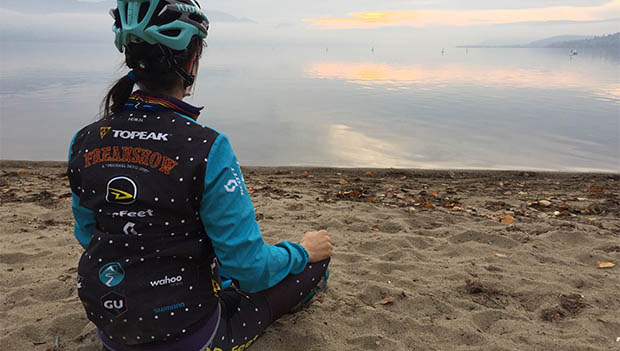
We were both disappointed, but it was still a positive experience. It strengthened our camaraderie, and I attribute it to the power of mindset and mental toughness.
Mental toughness doesn’t mean denying emotions around a difficult situation but rather being able to choose the lens through which you want to view your experience. Happiness is a choice, and misery and self-pity parties are optional. Mental toughness is the ability to make the best of everything that is happening.
Being tough isn’t about putting up a shield and deflecting everything that crosses your path.
Fortunately, I’ve had a lot of opportunity to practice mental toughness. I’ve taken on the hardest ultra-endurance mountain bike races in more than 20 countries and had my fair share of adverse challenges over the years through places like the rugged Himalaya, the dunes of the Sahara, the Steppes of Mongolia and the jungles of Sri Lanka. Being tough isn’t about putting up a shield and deflecting everything that crosses your path. It’s recognizing the thoughts and feelings around what just happened and deciding how you will respond before you react.
But how exactly do you do that?
Change your explanatory style.
We all have a personal narrative around the inputs occurring in our lives. In The Happiness Advantage, author Shawn Achor describes that people’s explanatory style is often a good predictor of success in everything from sports to even recovery from a bypass surgery. You can continue to develop a positive mindset by being aware of how you explain situations to yourself.
Optimists believe that setbacks are not permanent while pessimists believe that things will never change. Our brains are wired into certain patterns, and we get to train our brains to be positive or negative. Achor says, “You have to train your brain to be positive just like you work out your body.”
Develop a meditation practice to create a “pause” button.
Meditation doesn’t have to be sitting for thirty minutes on a cushion. It can be done in short increments where you simply check in and focus on your breath. Meditation helps create space and a pause button between a strong emotion and the reaction to the emotion. You can even use meditation to improve your cycling.


